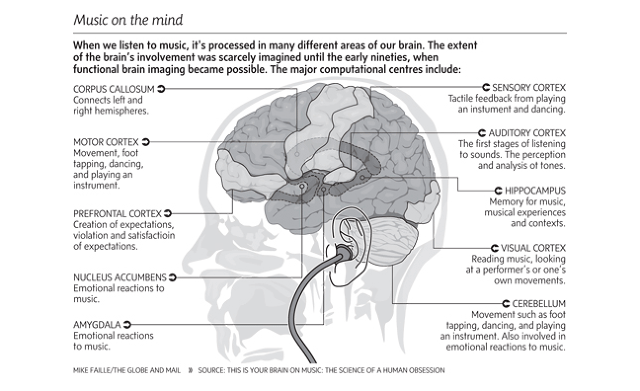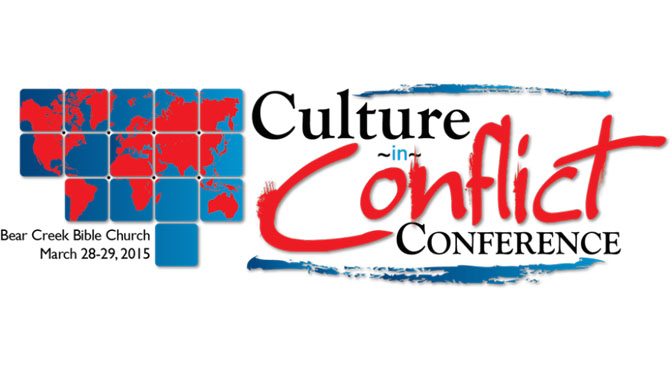Dr. Michael Gleghorn considers the lessons presented by the life and writings of the famous author of The Pilgrim’s Progress to give each of us a better understanding of the role of suffering in the lives of followers of Christ.
A Suffering Pilgrim
 John Bunyan is known to most people today as the author of The Pilgrim’s Progress, a book he began writing in prison. It tells the story of “Christian,” who makes his way from the “City of Destruction” (which represents this world) to the “Celestial City” (which represents Heaven). It’s been described as “perhaps the world’s best-selling book” (after the Bible), and has been “translated into over 200 languages.”{1} Written in the form of an allegory, it essentially relates the story of Bunyan’s own Christian journey.{2} And just as his life was full of trials and suffering, so also “Christian” must face many hardships and difficulties as well.
John Bunyan is known to most people today as the author of The Pilgrim’s Progress, a book he began writing in prison. It tells the story of “Christian,” who makes his way from the “City of Destruction” (which represents this world) to the “Celestial City” (which represents Heaven). It’s been described as “perhaps the world’s best-selling book” (after the Bible), and has been “translated into over 200 languages.”{1} Written in the form of an allegory, it essentially relates the story of Bunyan’s own Christian journey.{2} And just as his life was full of trials and suffering, so also “Christian” must face many hardships and difficulties as well.
Bunyan was born in England in 1628 at a time of great political and religious unrest. In 1644, at just fifteen years old, both his mother and sister died within a month of each other. Later that year, “when Bunyan had turned sixteen, he was drafted into the Parliamentary Army and for about two years was taken from his home for military service.”{3} He married in 1648, at about the age of twenty, but his wife died just ten years later, leaving him with four children, the oldest of whom was blind. He married again the following year, in 1659, but incredibly, just one year after this, “Bunyan was arrested and put in prison.”{4} His wife, who was pregnant at the time, suffered a miscarriage, probably because of the added stress which this ordeal created. She was then left to care for Bunyan’s four children while he spent the next twelve years in jail.{5}
As you can see, Bunyan was no stranger to suffering. Indeed, he had an intimate, firsthand acquaintance with heartache, trials, and difficulties. But what crimes had he committed to be cast into prison? Essentially, the charges against him were two: first, “he refused to attend the services of the Established church” of England; and second, he “preached to unlawful assemblies.”{6} You see, Bunyan had converted to Christianity during his first marriage and had become a powerful and respected preacher. But in the volatile political and religious climate of that day, the freedom of Nonconformist preachers like Bunyan eventually came to an end. And when it did, he was arrested and put in prison.
In the remainder of this article we’ll look at some of the trials this man endured, how he responded to them, and what they might teach us as we each make our own spiritual journey.
The Pilgrim’s Conversion
The Pilgrim’s Progress is one of the best-selling Christian books of all time. But as Bunyan tells us in another of his books, the autobiographical Grace Abounding to the Chief of Sinners, before becoming a Christian he had few equals in “cursing, swearing, lying and blaspheming the holy name of God.” Indeed, prior to his marriage, he says he was “the very ring-leader of all the youth . . . into all manner of vice and ungodliness.”{7}
Bunyan’s young wife had a very godly father. When he died, he left her two books which she brought into her marriage: The Plain Man’s Pathway to Heaven and The Practice of Piety. According to Bunyan, although these books did not awaken him to his “sad and sinful state,” they nevertheless did arouse within him “some desires to religion.”{8} One of the practical effects of these new desires was Bunyan’s regular attendance at a local church.
Soon Bunyan also began to read the Bible. He then came under such powerful conviction of sin that he scarcely knew what to do. “Sin and corruption,” he wrote, “would as naturally bubble out of my heart, as water would bubble out of a fountain. . . I thought none but the devil himself could equalize me for inward wickedness and pollution of mind.”{9} Bunyan was plunged into a state of despair over the greatness of his sin which, he tell us, “continued a long while, even for some years together.”{10}
Eventually, after years of spiritual and emotional agony, Bunyan described “what seemed to be the decisive moment.”{11} He was heading into the field one day when suddenly this sentence broke in upon his mind: “Thy righteousness is in heaven.” At this, he says, “I . . . saw . . . that it was not my good frame of heart that made my righteousness better, nor yet my bad frame that made my righteousness worse: for my righteousness was Jesus Christ himself, the same yesterday, and today, and for ever (Heb. 13:8).” “Now,” he said, “did my chains fall off my legs indeed . . . my temptations also fled away . . . now went I . . . home rejoicing, for the grace and love of God.”{12}
After years of spiritual anguish, Bunyan had been set free by the grace of God from some of his worst fears and torments. But as we’ll see, this was not to be the end of his experience with suffering. As one set of trials was ending, another was soon to begin.
The Pilgrim’s Imprisonment
According to Bunyan, five or six years after his conversion, in about the year 1655, some of the believers in his local congregation began entreating him “to speak a word of exhortation unto them.”{13} Although initially hesitant, Bunyan agreed to their request “and suddenly a great preacher was discovered.”{14} Apparently, word spread quickly through the English countryside. According to one author, “In the days of toleration, a day’s notice would get a crowd of 1,200 to hear him preach at 7 o’clock in the morning on a weekday.”{15}
Unfortunately, it was not to last. In 1660, the same year in which Charles II was brought home as king in the Restoration of the Monarchy, John Bunyan was arrested and imprisoned “for preaching without state approval.”{16} Officially, he was charged with being in violation of the Elizabethan Conventicle Act of 1593. According to this Act, anyone found guilty of “abstaining from coming to church to hear divine service, and . . . being a common upholder of several unlawful meetings . . . could be held without bail until he or she submitted to the authority of the Anglican church.”{17} As a Nonconformist preacher, this Act applied to men like Bunyan.
What’s interesting, however, is that Bunyan could have gone free at any time, so long as he agreed to give up preaching. But as he was firmly persuaded that he had been called by God to this ministry, he was completely unwilling to abandon his calling. He thus spent the next twelve years in prison, largely cut off from his wife, children, friends, and church.
I say “largely cut off” for, strange as it may seem, it appears that Bunyan was occasionally let out “to see his family or make brief trips.”{18} Of course, this was the exception and not the rule. Nevertheless, by “the standards of the seventeenth century the conditions in which he was held were not particularly brutal.”{19} On the other hand, Bunyan was largely fortunate in this respect: “hundreds of Dissenters died in prison, and many more came out with their health broken by foul, over-crowded conditions.”{20}
Although these qualifications must be admitted, we must never lose sight of the fact that Bunyan was willing to endure twelve long years of this suffering, rather than agree to give up preaching. And thankfully, as we’ll see, God brought a great deal of good out of His faithful servant’s suffering.
The Pilgrim’s Writings
Most people today know John Bunyan as the author of The Pilgrim’s Progress, but this is just one of many works written by the metal-worker turned minister. His first book was written in 1656, when he was twenty-eight years old. But by the time of his death, some thirty-two years later, he had authored fifty-seven more!{21} John Piper notes:
The variety in these books was remarkable: books dealing with controversies (like those concerning the Quakers . . . justification and baptism), collections of poems, children’s literature, and allegory (like The Holy War and The Life and Death of Mr. Badman). But the vast majority were practical . . . expositions of Scripture built from sermons for the sake of . . . helping Christian pilgrims make their way successfully to heaven.{22}
What’s especially astonishing about the size and variety of Bunyan’s literary legacy is that it came from a man with almost no formal education. As a child Bunyan had been taught to read and write, but nothing more. He had no university or seminary degrees in which to boast. And yet his diligent study of the Bible, born mainly out of a burning desire to find peace with God, made Bunyan mighty in the Scriptures. Indeed the Bible, more than any other book, would be the primary influence upon his many writings. So evident was this to Charles Spurgeon, the famous nineteenth century Baptist preacher, that he once wrote of Bunyan:
He had studied our Authorized Version . . . till his whole being was saturated with Scripture; and though his writings are . . . full of poetry, yet he cannot give us his Pilgrim’s Progress—that sweetest of all prose poems—without continually making us feel and say, “Why, this man is a living Bible!” Prick him anywhere; and you will find that his blood is Bibline, the very essence of the Bible flows from him.{23}
Not even his suffering in prison could dampen Bunyan’s enthusiasm for the Word of God or for writing. Indeed, if anything, it increased it. Some of his best-known works were written from the confines of a prison cell. These include Grace Abounding to the Chief of Sinners, written during his first imprisonment, as well as The Pilgrim’s Progress, apparently completed during a second, briefer period of imprisonment in 1677.{24} Bunyan’s writings are surely one of his greatest gifts to the church.
Lessons from a Suffering Pilgrim
A thoughtful examination of John Bunyan’s reflections on the purpose and value of suffering can give us much wisdom in how best to deal with it in our own lives. Near the end of his spiritual autobiography, Grace Abounding to the Chief of Sinners, he appended a brief account of his imprisonment in the Bedford jail. In it, he tells of how he tried to prepare himself for imprisonment, and possibly even death, when he realized that he might soon be called upon to suffer for the cause of Christ. Naturally, as one might well expect, one of the things he did was pray. He was particularly concerned to ask God for the strength to patiently endure his imprisonment, even with an attitude of joy (Col. 1:11).{25}
However, it’s the second thing he says that I find especially interesting and helpful. He reflects on the words of the apostle Paul in 2 Corinthians 1:9: “[W]e had the sentence of death within ourselves in order that we should not trust in ourselves, but in God who raises the dead” (NASB). Commenting on this verse, he then makes the following two observations:
By this scripture I was made to see that if ever I would suffer rightly, I must first pass a sentence of death upon everything that can properly be called a thing of this life, even to reckon myself, my wife, my children, my health, my enjoyments and all, as dead to me, and myself as dead to them. . . . The second was, to live upon God that is invisible; as Paul said in another place, the way not to faint, is to look not at the things that are seen, but at the things that are not seen; for the things that are seen are temporal; but the things that are not seen, they are eternal{26}.
Bunyan realized that, like it or not, suffering, pain, loss and death would all come to him in one way or another. Indeed, sooner or later every single one of us must ultimately face these terrifying realities. How, then, can we best prepare to meet them? As Bunyan reminds us, if we only prepare for prison, say, then we will be unprepared for beatings. But if we stop our preparation with beatings, then we will be unprepared for death. But we cannot evade or cheat death forever. And thus, concludes Bunyan, “the best way to go through sufferings, is to trust in God through Christ, as touching the world to come; and as touching this world.”{27} This was how Bunyan lived, and with God’s help it was also how he died. May the eternal and unseen God grant each of us the grace to follow his example.
Notes
1. Christopher Hill, A Tinker and a Poor Man: John Bunyan and His Church, 1628-1688 (New York: Alfred A. Knopf, 1989), 375, cited in John Piper, The Hidden Smile of God: The Fruit of Affliction in the Lives of John Bunyan, William Cowper, and David Brainerd (Wheaton, Ill.: Crossway Books, 2001), 60.
2. W. R. Owens, “Introduction,” in Grace Abounding to the Chief of Sinners (New York: Penguin, 1987), xxiii.
3. Piper, The Hidden Smile of God, 49.
4. Ibid., 54.
5. Ibid.
6. Owens, “Introduction,” xv.
7. John Bunyan, Grace Abounding to the Chief of Sinners, ed. W. R. Owens (New York: Penguin, 1987), 8.
8. Ibid., 10.
9. Ibid., 24.
10. Ibid.
11. Piper, The Hidden Smile of God, 52.
12. Bunyan, Grace Abounding, 59.
13. Ibid., 67-68.
14. Piper, The Hidden Smile of God, 53.
15. Ibid.
16. Ibid., 47.
17. Owens, “Notes,” in Grace Abounding to the Chief of Sinners, 127, n. 137.
18. Piper, The Hidden Smile of God, 48.
19. Owens, “Introduction,” xvi.
20. Ibid.
21. Piper, The Hidden Smile of God, 60.
22. Ibid., 60-61.
23. Charles Spurgeon, Autobiography, vol. 2 (Edinburgh: The Banner of Truth Trust, 1973), 159; cited in Piper, The Hidden Smile of God, 77.
24. Owens, “Introduction,” xvi-xvii.
25. Bunyan, Grace Abounding, 79.
26. Ibid.
27. Ibid.
© 2009 Probe Ministries
 Ultimately marriage is a picture of Christ and the Church—a picture both songs catch a small glimpse of. When Trainor in “Dear Future Husband” desires (albeit via demand) for her husband to show her love by serving her and affirming her, she desires something that is biblical. Husbands are called to nourish, cherish, honor, embrace, protect, and love their wives.
Ultimately marriage is a picture of Christ and the Church—a picture both songs catch a small glimpse of. When Trainor in “Dear Future Husband” desires (albeit via demand) for her husband to show her love by serving her and affirming her, she desires something that is biblical. Husbands are called to nourish, cherish, honor, embrace, protect, and love their wives. Yet our marriage is only a picture—a flawed and imperfect picture. Husbands abuse wives, wives undermine their husbands, and spouses cheat on each other which can all lead to separation and divorce. God did not intend marriage to be plagued by sin, and divorce and pain was not in his design.
Yet our marriage is only a picture—a flawed and imperfect picture. Husbands abuse wives, wives undermine their husbands, and spouses cheat on each other which can all lead to separation and divorce. God did not intend marriage to be plagued by sin, and divorce and pain was not in his design.
